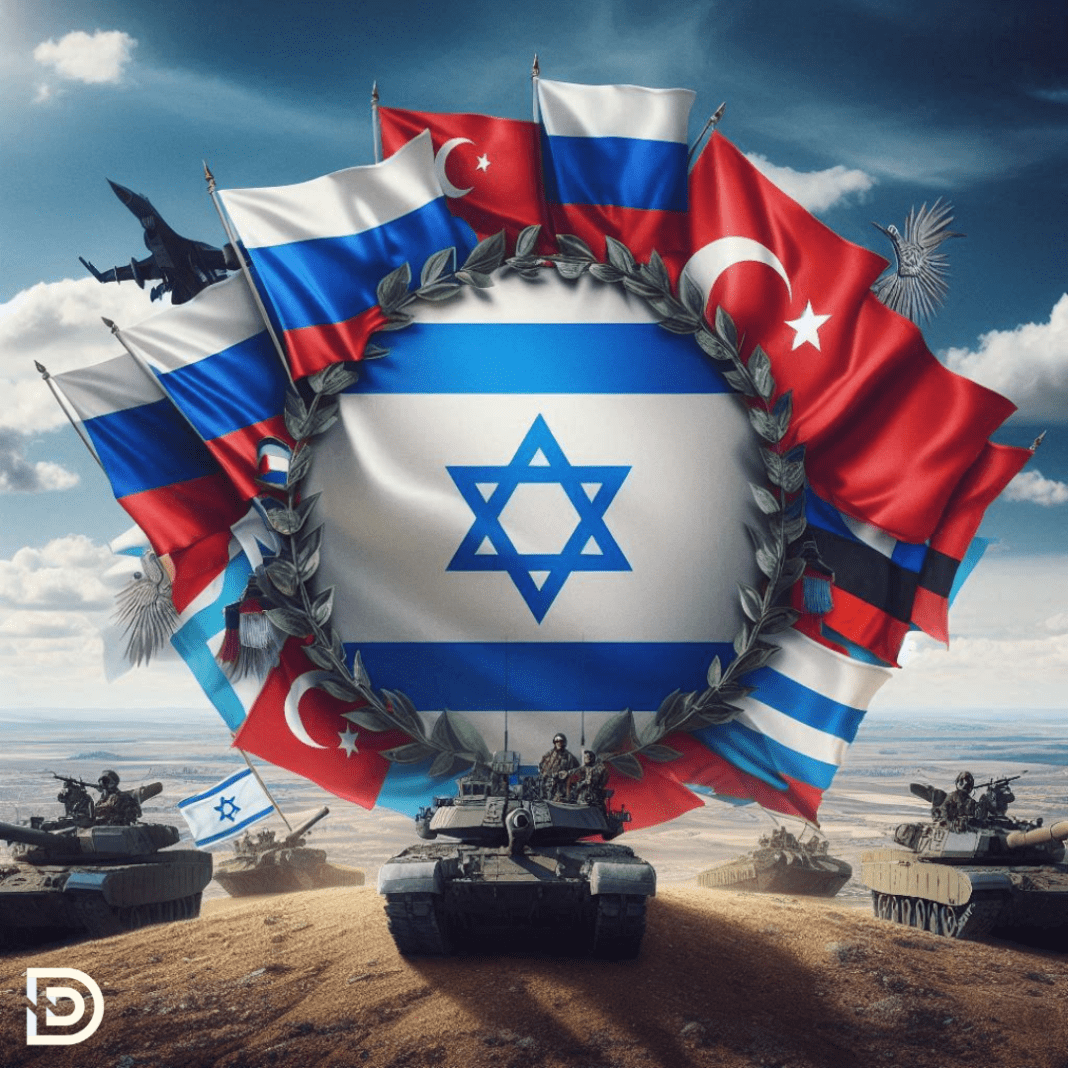Israel is actively pressuring the United States to maintain Russian military bases in Syria. This request is part of a larger strategy to keep Syria weak and prevent Turkey from increasing its influence in the region. According to sources familiar with the situation, Israeli officials conveyed their stance to top US officials during meetings in Washington in February.
Israel’s Lobbying Efforts with the US
These discussions were followed by additional meetings in Israel with US Congressional representatives. The key points of this request were reportedly included in a special Israeli document called a “white paper” that was shared with some senior US officials.
Israel’s primary concern is the rise of the new Syrian government, which is supported by Turkey. This government emerged after the fall of the previous Syrian leadership. Israeli officials fear that this new administration, backed by Turkey, might become a base for militant groups. The officials worry that these groups could create threats along Israel’s borders. Syria’s new government is led by the Islamist group Hayat Tahrir al-Sham (HTS), which was once linked to al Qaeda before cutting ties in 2016. Israel has expressed deep distrust of HTS and has warned against their presence in southern Syria.
Israel has carried out multiple airstrikes on Syrian military targets in recent months. These attacks were aimed at weakening both the new Syrian government and any groups aligned with Turkey or Iran. The Israeli government has publicly stated that it will not tolerate the presence of HTS or any other Islamist groups near its borders. This aggressive approach shows how seriously Israel views the current situation in Syria.
Russia’s Military Presence and Turkey’s Role
Israel’s strategy to contain Turkey involves allowing Russia to maintain its military bases in Syria. Russia currently operates a naval base in Tartus province and an airbase in Latakia province. These bases give Russia significant military control in the region. During meetings with US officials, Israeli representatives highlighted the positive role of Russia’s military presence. However, some US officials were surprised by this approach. They argued that Turkey, as a NATO member, could act as a better security partner for Israel.
Turkey’s role in Syria is a growing concern for Israel. Turkey has been a strong ally of the new Syrian government. The Turkish leadership has previously called for an alliance of Islamic countries against what it described as Israel’s expansionist policies. Israeli officials believe that Turkey is supporting Iran’s efforts to rebuild the militant group Hezbollah. They also fear that Turkish-backed Islamist groups in Syria might open a new front against Israel.
In addition to its military support, Turkey has played an active role in Syria’s reconstruction efforts. Turkish companies are involved in rebuilding infrastructure in areas controlled by the new Syrian government. This economic influence further strengthens Turkey’s position in Syria. Israel sees this as a threat to its own security and regional dominance.
Israeli officials have warned that if Turkey’s influence continues to grow, it could reshape the power balance in the region. They argue that allowing Russia to maintain its military bases would help limit Turkey’s power and prevent the spread of Islamist influence in Syria. This view has been communicated to US officials as part of Israel’s lobbying campaign.
The US Response and Regional Reactions
The United States has not yet made any clear decisions regarding Israel’s requests. Under the previous US administration, there were discussions about lifting sanctions on Syria’s new government in exchange for the closure of Russian military bases. However, those talks did not lead to an agreement before the new US administration took office. Some experts believe that the current US administration, which has a closer relationship with Russia, may be more open to allowing Russian bases to remain in Syria.
Meanwhile, other US allies in the region, such as Saudi Arabia, have taken a different approach. Saudi Arabia recently announced that it was working with the US and the European Union to help lift Western sanctions on Syria. Turkey, on the other hand, has hosted high-level talks with Russian officials to protect its interests in Syria. Turkish officials see Israel’s lobbying efforts as a threat to their influence in the region.
The situation highlights the complex web of alliances and rivalries shaping Syria’s future. Israel’s campaign to keep Syria weak through Russian military presence stands in sharp contrast to other regional powers’ efforts to stabilize the country. The outcome of this struggle will have significant implications for the balance of power in the Middle East.
Syria’s new leadership has made efforts to rebuild diplomatic ties with Western and Arab states. They have promised an inclusive government and sought to reassure neighboring countries about their intentions. However, Israel remains skeptical of these promises and continues to push for measures that would limit Syria’s military capabilities. The ongoing lobbying efforts are part of Israel’s broader strategy to protect its security interests in a rapidly changing region.

